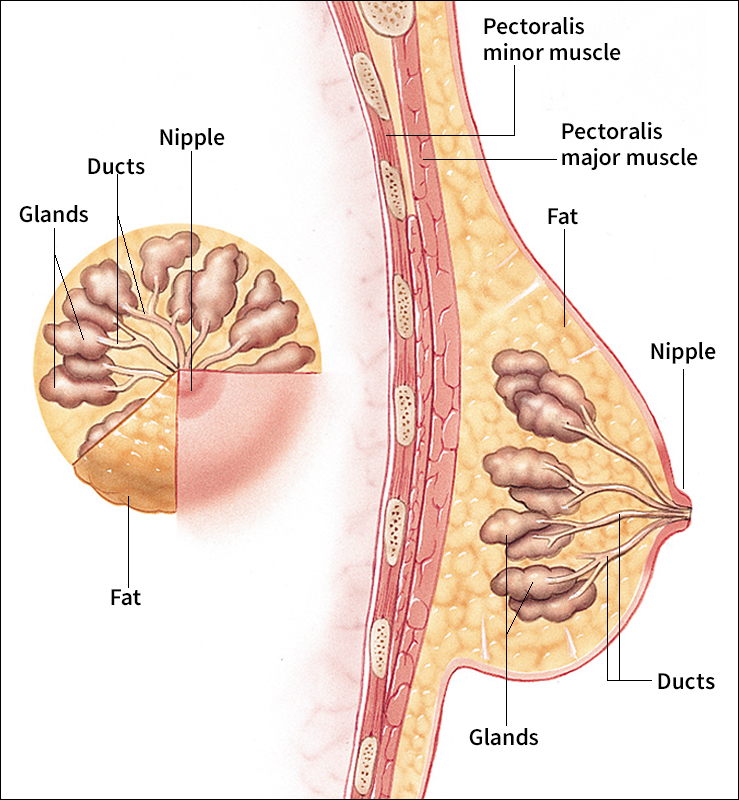Breast is an organ specially designed to produce milk to feed a baby. Human beings have two breasts, but only those of mature females can produce milk. The breasts of males do not develop fully because males lack the female hormone pattern required for breast development. Breasts are also called mammary glands, especially when referring to those of nonhuman mammals. See Mammary glands .

Breasts probably evolved from some type of secreting skin gland. In female breasts, secreting cells arranged in tiny lobules, also called acini, form the glands that make the milk. A network of ducts (tubes) carry the milk to the nipple. The ducts and glands are surrounded by fatty and fibrous support tissue and enclosed by skin. The organ rests on the pectoralis major muscle of the chest wall.
A female’s breasts begin to grow around age 10 to 12, and they continue to develop until she is about 16 to 18 years of age. Breasts may be affected by changes in the levels of hormones in a woman’s blood. For example, the breasts may swell and become painful or lumpy before menstruation. After menstruation, the pain or lumpiness usually goes away. See Menstruation .
When a woman becomes pregnant, the ducts and glands in her breasts enlarge. As soon as the baby is born, hormones in the mother’s body start the lactation (milk-making) process. The baby’s sucking of the nipples also stimulates lactation. A mother’s milk is a complete source of food and energy for the baby. It also contains antibodies that protect the infant from many diseases.
Breast cancer is the most common form of cancer among women. The best way to fight the disease is by detecting it early. Mammography (X-ray examination of the breast) is the best tool for early detection. In addition, women over the age of 20 should practice breast self-examination once a month. With her fingers flat, a woman should feel her breasts for lumps. She also should visually inspect the breasts for any changes and check the nipples for fluid discharge. Women who discover any of these changes should promptly see a physician.
